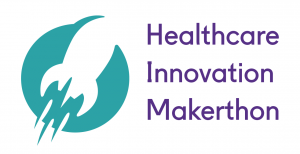Bryan Spielman is the executive vice president of strategy and corporate development at Medidata and is responsible for driving the technology company's corporate strategy and global business development activities. Bryan holds an MBA from New York University Stern School of Business and a BA from the University of Pennsylvania. He is a member of the Partnership Fund for NYC's Healthcare Advisory Board and actively mentors technology start-ups.
I recently had the privilege to give the keynote address for the NYU Healthcare Innovation  Makerthon at NYU’s Langone Medical Center. The event, a collaboration between the NYU School of Medicine and the NYU Entrepreneurial Institute, focused on developing the most promising solutions to the challenges posed by our healthcare industry.
Makerthon at NYU’s Langone Medical Center. The event, a collaboration between the NYU School of Medicine and the NYU Entrepreneurial Institute, focused on developing the most promising solutions to the challenges posed by our healthcare industry.
The top 20 of over 300 submissions by the NYU community of students, doctors, nurses and researchers, were invited to present to a panel of judges. A number of innovative ideas from across the healthcare spectrum were presented, including reducing bacteria on cell phones, coordinating communication between doctors and nurses, and educating diabetes patients on self-managing their condition. The audience and judges selected the 10 best ideas, awarded prizes and moved the winning groups to the next phase of the Makerthon, where the solutions are actually developed.
This future-looking healthcare event was the perfect backdrop to discuss the opportunities created by the intersection of science and technology. Each year, the technology industry pushes the envelope on innovation – a great example being “Moore’s law,” which is the observation that, over the history of computing hardware, the number of transistors in a dense integrated circuit has doubled approximately every two years.
On the other hand, the pharmaceutical industry is on an inverse path, sometimes referred to as “Eroom’s law” (Moore’s law spelled backwards), which specified that the number of new drugs approved by the FDA per billion dollars is halving about every nine years. Merck executive Roger Perlmutter has said that Hippocrates would be comfortable with modern day clinical trials. How sobering.
When we consider the importance of the life sciences industry towards improving human longevity, now is the perfect time to shake up the status quo by leveraging technology to help the industry reach![]() its full potential. Maybe I’m biased, but I believe one of the best ways to modernize the pharmaceutical industry is by placing greater emphasis on technology to improve clinical research.
its full potential. Maybe I’m biased, but I believe one of the best ways to modernize the pharmaceutical industry is by placing greater emphasis on technology to improve clinical research.
In fact, earlier in the year, President Obama recognized the power of technology to advance life sciences by kicking off the Precision Medicine Initiative to deliver personalized medicine, a concept only possible by advancements in science and technology. Given the amazing recent advancements in research, including immuno-oncology and cellular therapy, as well as real progress with Alzheimer’s Disease and other neurodegenerative diseases, we must also find ways to push down the cost curve and get innovation to market faster to the patients that need them. Technology will provide this pathway.
A greater emphasis on data, mobility, connectivity and the cloud will contribute to and drive meaningful change. Look outside of our industry and you’ll see other companies such as Airbnb and Uber have delivered revolutionary changes by focusing on mobility and connectivity. And by placing greater emphasis on data, the possibilities are far-reaching.
We are at the vanguard of dramatic improvements in healthcare and life sciences driven by technological innovation, and it’s truly an exciting time to be working in this field.
This article was originally published on Medidata's blog 'Geeks Talk Clinical'.







